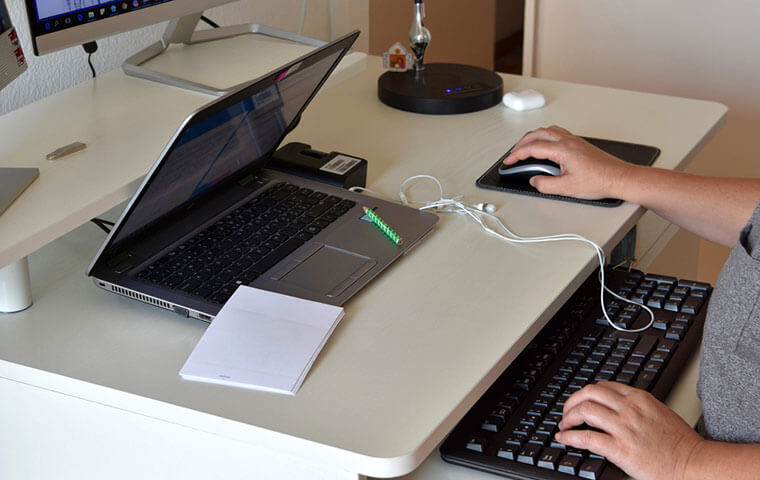 Image: Luciavonu/Shutterstock.com
By: FEDweek Staff
Image: Luciavonu/Shutterstock.com
By: FEDweek StaffMore than half of Justice Department attorneys would like to telework at least half of the time long-run but only 18 percent said they expect that their component will allow for it, a survey by the department’s IG has found.
Of the roughly four-tenths who prefer to telework less than half of the time, only slightly above half said they expect even that would be allowed, a report said, adding that “overall, responses for preferred and expected telework were similar between attorneys in management and supervisory positions and non-manager and non-supervisory attorneys.”
The survey is one of the most detailed looks at telework in any federal agency in the nearly two years since the government began allowing unprecedented levels of it—and it comes just ahead of when many agencies expect to begin carrying out long-term “reentry” plans calling for more in-office work by more employees.
The IG separately polled Justice Department attorneys who litigate, supervise or otherwise assist federal criminal and civil cases, and the department’s immigration judges. The results were based on some 4,600 responses, the large majority from the former group.
Among the attorneys, 94 percent said they have teleworked at least one day a week during the pandemic, with most of those saying they have teleworked full-time, going into the office only occasionally as needed. The IG said that by far the most common comment it received on their experiences could be summarized as “telework is going well and is more productive.”
“Most of the attorneys’ comments reflected a positive experience transitioning to a full-time telework posture and hope for expanded telework allowances in a post-pandemic environment. In addition, some attorneys recognized the need to return to an office environment for mission-critical work and in-person team collaboration,” it said.
About half said their workload has remained the same but of the rest, almost all said it has increased. However, almost half of the second group said their productivity has increased compared with only about 10 percent who said it decreased, and only a quarter said the higher workload has lowered their job satisfaction.
Teleworking and workload patterns differed somewhat for the immigration judges, but the responses regarding future hopes and expectations were largely the same. Just over a quarter desired to telework more than half of their time, only 7 percent expected it would be allowed. Of the 60 percent who said they would prefer to telework less than half of the time, only 40 percent believed that even that would be allowed.
“Notably, 30% of IJs responding on this topic expressed the belief that they would never be allowed to telework in a post-pandemic operating environment, with an additional 20% unsure,” it said.
Pay Raise Order Likely Soon, to Specify Division of Locality Pay
One New Form of Leave Finalized, Proposal for Another Set Aside
See also,
Vaccination Rates Rise as Discipline Edges Closer for the Non-Compliant
Republican Leaders Renew Pressure to Return More Federal Employees to Regular Workplaces
House Backs New Whistleblower Protections, Seeks to Bar a Future ‘Schedule F’

